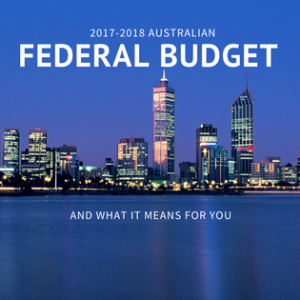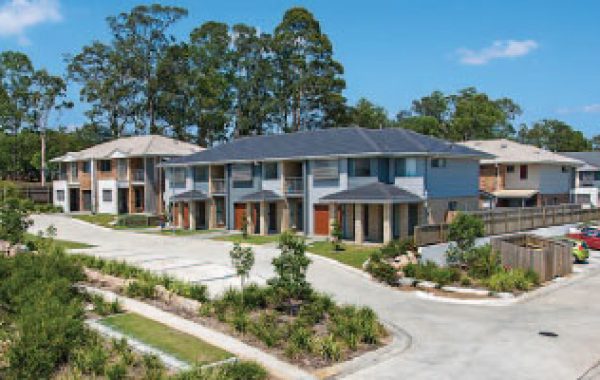The Temporary Budget Repair Levy will cease on 30th of June this year as planned. It is imposed at two percent of taxable income in excess of $180,000. For small businesses, $20,000 immediate write-off is being extended for one year, until June 2018. The Medicare levy is being increased from 2% to 2.5%, effective from the 2019-2020 income year. To reduce the pressure on housing affordability, a number of measures have been announced including:
● An annual charge on foreign owners of underutilised residential property
● Various CGT changes for foreign investors, including denial of the main residence exemption
● An option for individuals aged 65 or over to contribute the proceeds of downsizing their home to superannuation
● Denial of deductions for expenses related to inspecting, maintaining or collecting rent for a residential investment property
● Access to a higher CGT discount of 60% (as compared to the 50% available in other circumstances) for investments in qualifying affordable housing
● The introduction of a first home super saving scheme
If you are an individual who pays tax, you are required to pay the Medicare levy and you will have to pay more for the year 2019-2020 tax, as the Medicare levy is being increased from 2% to 2.5%. However, you might not have to pay the Medicare levy this year. From the 2016-17 income year (this year) the Government will increase the Medicare levy low‑income threshold for singles to $21,655 (from $21,335), for families to $36,541 (from $36,001), for single seniors and pensioners to $34,244 (from $33,738) and for senior and pensioner families to $47,670 (from $46,966). The additional amount of threshold for each dependent child or student will also be increased to $3,356 (from $3,306). This means that you can earn more before triggering a liability to pay the Medicare levy.
If you are earning more than $180,000 per year, you will pay less tax next year. The additional two percent on taxable income in excess of $180,000 will cease and it is not being extended.
If you are a homeowner, aged 65 or over, and have owned that home for at least 10 years, from 1 July 2018 they you be able to make a non-concessional (after-tax) contribution of up to $300,000 from the proceeds of selling your home. You will be able to do this regardless of the existing age test, work test, and soon to be introduced $1.6 million cap on after-tax contributions. But if you are a foreign or temporary resident you will not have access to the CGT main residence exemption from 7.30pm on Budget night (although existing properties held prior to this time will be grandfathered until 30 June 2019).
If you are planning to own a house, you will be able to withdraw on or after July 1, 2018 voluntary superannuation contributions you make from July 1, 2017, along with associated deemed earnings, for a first house deposit. You will be taxed at your marginal rate, less a 30 percent offset, on concessional (before-tax) contributions you withdraw. Also, you will be able to contribute up to $15,000 per year and up to $30,000 in total.
If you are still studying, the repayments on the student’s Higher Education Loan Programme (HELP) debts will be subject to revised income thresholds - a new minimum threshold of $42,000 will be established with a 1% repayment rate and a maximum threshold of $119,882 with a 10 percent repayment rate.
If you have an SMSF, the use of limited recourse borrowing arrangements by their fund will be included in $1.6 million total superannuation balance and transfer balance cap, thereby reducing their scope to make non-concessional contributions from other sources. You can also expect a greater focus on the use of related party transactions on non-commercial terms to increase your superannuation savings.
People who invested in residential property
As a foreign resident and your property is not occupied or genuinely available on the rental market for at least six months per year, they will be charged an annual ‘penalty’ of at least $5,000. The new charge applies to applications to acquire property from 7:30pm Budget night. You might find yourself barred from buying into a new development, as the Government will introduce a 50% cap on foreign ownership in such developments and incur travel expenses related to inspecting, maintaining or collecting rent for the property. From July 1, 2017 they will no longer be able to claim deductions for those expenses. The cost of engaging a real estate agent for property management services will remain deductible.
If your residential property qualifies as ‘affordable housing’, you will be able to access concessional tax treatment by investing in a Managed Investment Trust that itself invests in affordable housing, provided the affordable housing is available for rent for at least ten years. On or after January 1, 2018 you will benefit from a higher CGT discount - 60% instead of 50%. To qualify for the higher discount, housing must be provided to low to moderate income tenants, with rent charged at a discount below the private rental market rate. The affordable housing must be managed through a registered community housing provider and the investment held for a minimum period of three years.
If your residential property contains plant and equipment, you will not be able to claim depreciation deductions for assets purchased after May 9, 2017 by a previous owner of the property. However, if it is newly constructed, on or after July 1, 2018 you will be required to remit GST on the purchase directly to the ATO as part of settlement, as opposed to the developer being required to remit the GST as is currently the case.
People who invest for a business property
If you are planning to employ foreign workers, from March 2018 you might be required to pay a levy. Your businesses will be required to make an upfront payment of $1,200 (for businesses with turnover of less than $10 million) or $1,800 (for businesses with turnover of $10 million or more) per visa per year for each employee on a Temporary Skill Shortage visa, and make a one-off payment of $3,000 (for businesses with turnover of less than $10 million) or $5,000 (for businesses with turnover of $10 million or more) for each employee being sponsored for a permanent Employer Nomination Scheme (subclass 186) visa or a permanent Regional Sponsored Migration Scheme (subclass 187) visa.
If you are planning to invest in a depreciating asset of at least two, small businesses (if their turnover is less than $10 million for the year) will be able to immediately deduct purchases of eligible assets costing less than $20,000 through to June 30, 2018 (initially planned to cease on June 30,2017). From July 1, 2018 the immediate deductibility threshold will revert back to $1,000.
If you are in the courier or cleaning industry, your accountant may need to take a second look at whether the small business CGT concessions will be available to you, as the Government is planning to make changes to those rules from July 1, 2017 designed to restrict their availability. Your taxable payments reporting system (TPRS) that operates in the building and construction industry will apply to you from July 1, 2018. They will be required to report payments you make to contractors (individual and total for the year) to the ATO and you are intending to dispose of your business or CGT assets used in your business
People who are operating in the black economy
Your affairs are more likely to be picked up by the ATO, as the Government will be extending the provision of additional funding for ATO audit and compliance programs to better target black economy activities, such as non-lodgement, the omission of income and non-payment of employer obligations.
The Government will act to prohibit the manufacture, distribution, possession, use or sale of electronic point of sale (POS) sales suppression technology and software, which apparently allows businesses to understate their incomes by untraceably deleting selected transactions from electronic records in POS equipment so that income earned from these transactions and tax owing from this income is not reported to the ATO.
View Details














